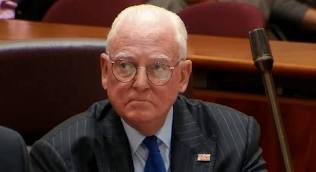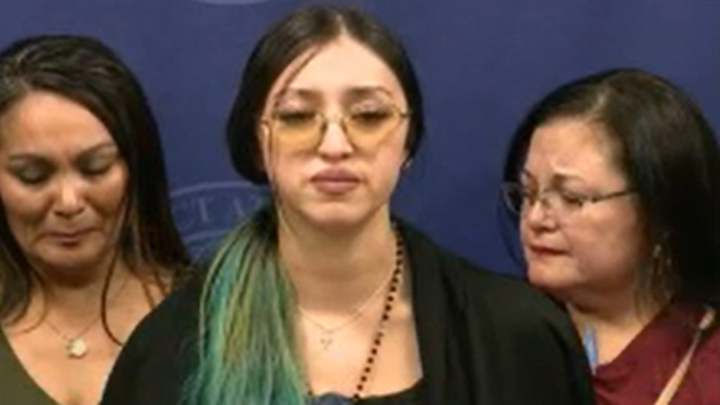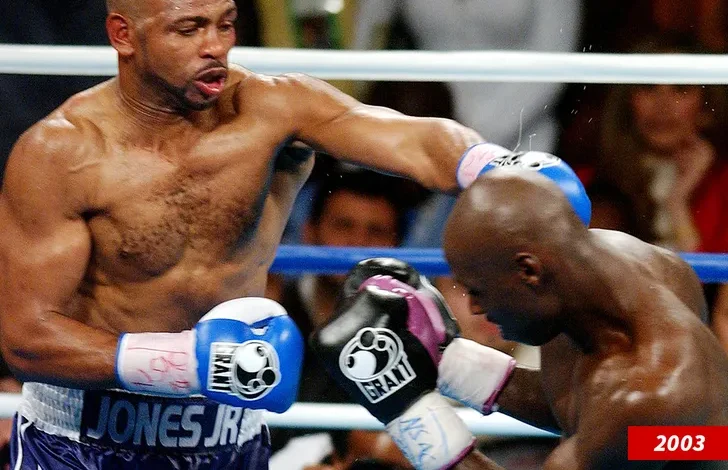
Former Chicago Alderman Ed Burke Sentenced to Two Years in Prison and Fined $2 Million in Federal Corruption Case: Alderman Ed Burke the Longest-Serving Alderman’s 54-Year Career Ends in Disgrace
Former Chicago Alderman Ed Burke Sentenced to Two Years in Prison and Fined $2 Million in Federal Corruption Case: Alderman Ed Burke the Longest-Serving Alderman’s 54-Year Career Ends in Disgrace
In a landmark case that has reverberated throughout the political corridors of Chicago and beyond, former Chicago Alderman Ed Burke, who served an unprecedented 54 years in the City Council, has been sentenced to two years in prison and fined $2 million after being convicted on 13 counts of corruption. The charges against Burke, who is now 80 years old, included racketeering, bribery, and attempted extortion. These charges stemmed from his egregious abuse of political power for personal enrichment, tarnishing a career that once stood as a pillar of municipal governance.
The sentencing took place at the Dirksen Federal Courthouse, a historic venue that has seen numerous high-profile cases but perhaps none as emblematic of Chicago’s ongoing struggle with corruption as this. The courtroom was packed to capacity, underscoring the significance of the proceedings. Among those in attendance were Burke’s family, supporters, former colleagues, and members of the clergy, all there to witness the culmination of a saga that had captured the city’s attention for years.
Prosecutors had originally sought a much harsher sentence, pushing for 10 years in prison. Assistant U.S. Attorney Sarah Streicker, who played a pivotal role in the prosecution, argued passionately that Burke’s actions had not only violated the law but had also deeply damaged the city’s integrity. During the sentencing hearing, Streicker detailed how Burke had exploited his political influence to secure lucrative legal business for his private firm. This conduct, she argued, came at the expense of ethical governance and contributed to Chicago’s infamous reputation for corruption. She emphasized that Burke’s lack of remorse was particularly troubling, painting a picture of a man driven by greed and indifferent to the harm his actions had caused.
In stark contrast, Burke’s defense team presented a narrative aimed at highlighting his personal virtues and contributions to the community. They appealed for leniency, pointing to his age and a record of charitable acts that they attributed to his personal faith. They argued that these acts demonstrated a lifetime commitment to public service that should be considered in the context of his sentencing. Burke’s defense sought to humanize him, portraying him as a dedicated public servant who had made mistakes but had also done a great deal of good.
Burke himself addressed the court in a poignant statement. While he expressed regret for the distress his legal troubles had caused his family and friends, he stopped short of fully accepting responsibility for his actions. His plea for compassion and mercy was a heartfelt attempt to mitigate the consequences of his impending imprisonment, emphasizing the personal toll this ordeal had taken on him and those close to him.
Despite a last-minute attempt by Burke’s defense to delay the sentencing, citing a pending U.S. Supreme Court ruling in a separate corruption case, U.S. District Judge Virginia Kendall proceeded with the sentencing. Judge Kendall determined that the outcome of the other case would not significantly impact Burke’s sentence. In delivering her sentence, she underscored the gravity of Burke’s offenses and the necessity of holding public officials accountable for their actions.
Burke’s sentencing marks one of the most significant public corruption cases in recent Chicago history. It brings to a close a lengthy and often controversial career that began when he first took office in 1969. Over the decades, Burke had amassed considerable power and influence, becoming a formidable figure in the City Council. His downfall, therefore, is not just a personal tragedy but also a stark reminder of the pervasive issues of political misconduct that have long plagued Chicago.
The case against Burke uncovered a web of corruption that involved various schemes designed to benefit him financially. Among the charges, Burke was found guilty of using his position to pressure business owners into hiring his law firm, promising favorable treatment in exchange for legal fees. This abuse of power was part of a broader pattern of behavior that included accepting bribes and engaging in racketeering activities.
The impact of Burke’s actions extended far beyond the immediate victims of his schemes. His conduct eroded public trust in the city’s political institutions and contributed to a culture of cynicism and disillusionment among Chicagoans. For many, Burke’s conviction and sentencing are a necessary step towards restoring integrity and accountability in municipal governance. However, it also serves as a sobering reminder of the challenges that lie ahead in the fight against corruption.
As the news of Burke’s sentencing spread, reactions poured in from across the city and beyond. Many expressed relief that justice had been served, viewing the sentence as a long-overdue reckoning for a politician who had long operated with impunity. Others, however, expressed sadness at the downfall of a man who had once been seen as a dedicated public servant. The mixed reactions reflect the complex legacy of Ed Burke, a figure who embodied both the best and the worst of Chicago politics.
In the days following the sentencing, various stakeholders began to reflect on the broader implications of the case. For the city’s political establishment, Burke’s downfall is a stark warning of the consequences of corruption. It underscores the need for robust oversight mechanisms and a commitment to ethical governance. For the public, it is a reminder of the importance of holding elected officials accountable and the vital role of an informed and engaged citizenry in maintaining the health of democracy.
The sentencing also prompted discussions about the future of political reform in Chicago. Many advocates seized the moment to call for renewed efforts to combat corruption and promote transparency in government. They argued that Burke’s case should serve as a catalyst for meaningful change, urging lawmakers to implement stricter regulations and enhance the powers of oversight bodies. These calls for reform were echoed by civic organizations and community leaders who emphasized the need for a comprehensive approach to addressing the root causes of corruption.
In the wake of Burke’s sentencing, attention also turned to the impact on his family and close associates. The personal dimension of the case added a layer of complexity to the public discourse, as many sympathized with the innocent relatives who had been caught up in the fallout. Burke’s family, who had stood by him throughout the trial, faced a future marked by the stigma and challenges associated with his conviction. For them, the sentencing was not just a legal judgment but a profound personal ordeal.
The media coverage of Burke’s case has been extensive, with journalists delving into various aspects of the story. Reports have explored the historical context of political corruption in Chicago, drawing parallels with other high-profile cases and examining the systemic factors that enable such behavior. In-depth analyses have provided insights into Burke’s career, his rise to power, and the network of relationships that sustained his influence. These explorations have contributed to a broader understanding of the dynamics at play and the challenges of eradicating corruption.
As Chicago grapples with the aftermath of Burke’s sentencing, the city is likely to undergo a period of introspection and reform. The case has highlighted the need for a cultural shift towards greater accountability and ethical behavior among public officials. It has also underscored the importance of vigilance and civic engagement in holding those in power to account.
Looking ahead, the legacy of Ed Burke will be a complex and contested one. His contributions to the city, including his advocacy for various causes and his role in shaping policy, will be weighed against the damage caused by his corrupt actions. For many, his downfall will serve as a cautionary tale about the corrupting influence of power and the imperative of maintaining integrity in public service.
In conclusion, the sentencing of Ed Burke marks a significant chapter in Chicago’s ongoing struggle with corruption. It is a moment of reckoning that highlights both the challenges and the opportunities in the pursuit of ethical governance. As the city moves forward, the lessons learned from this case will hopefully inspire a renewed commitment to transparency, accountability, and the rule of law. The story of Ed Burke, with all its complexities and contradictions, will continue to resonate as Chicago navigates its future and strives to build a political culture worthy of its citizens’ trust and confidence.



